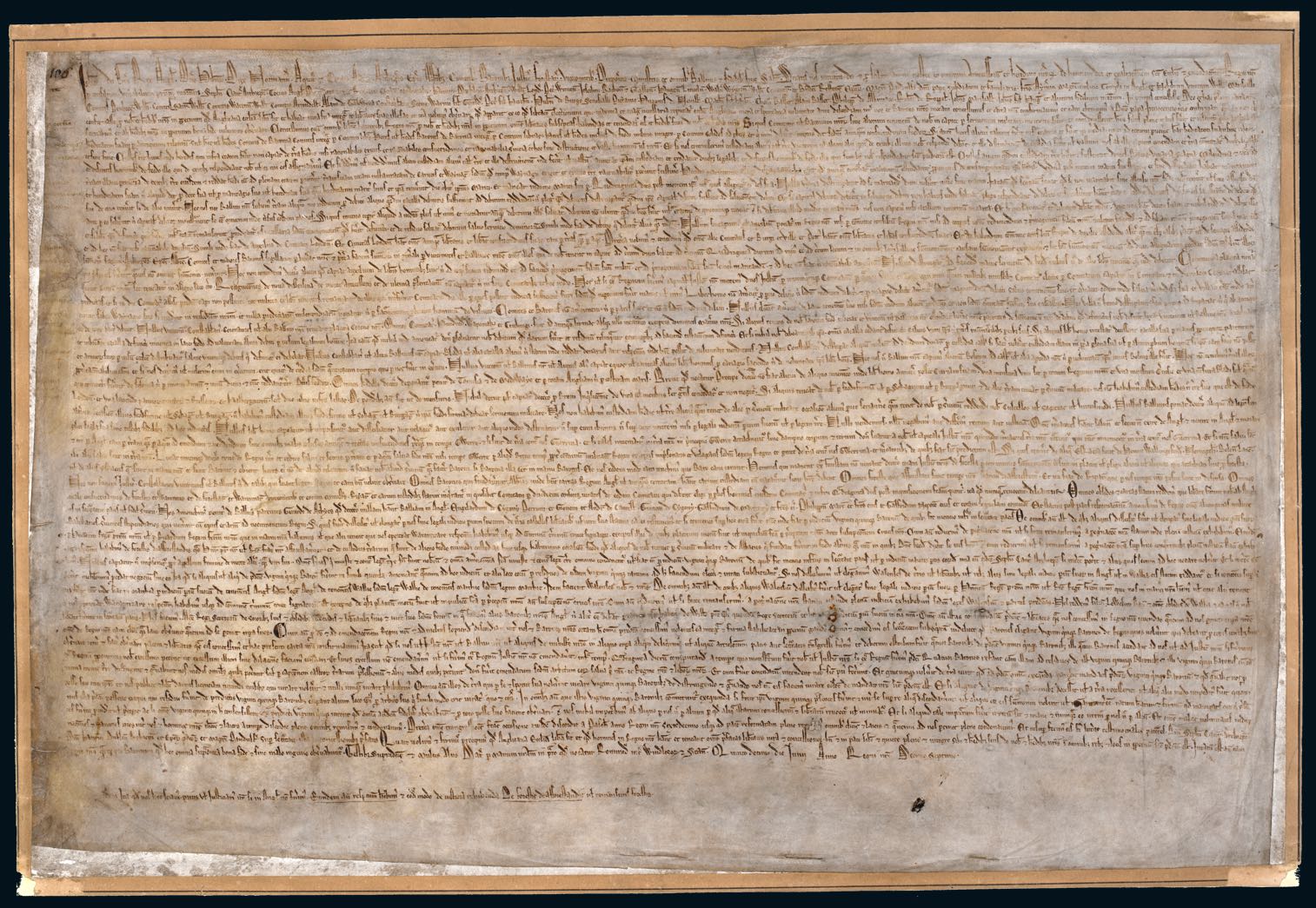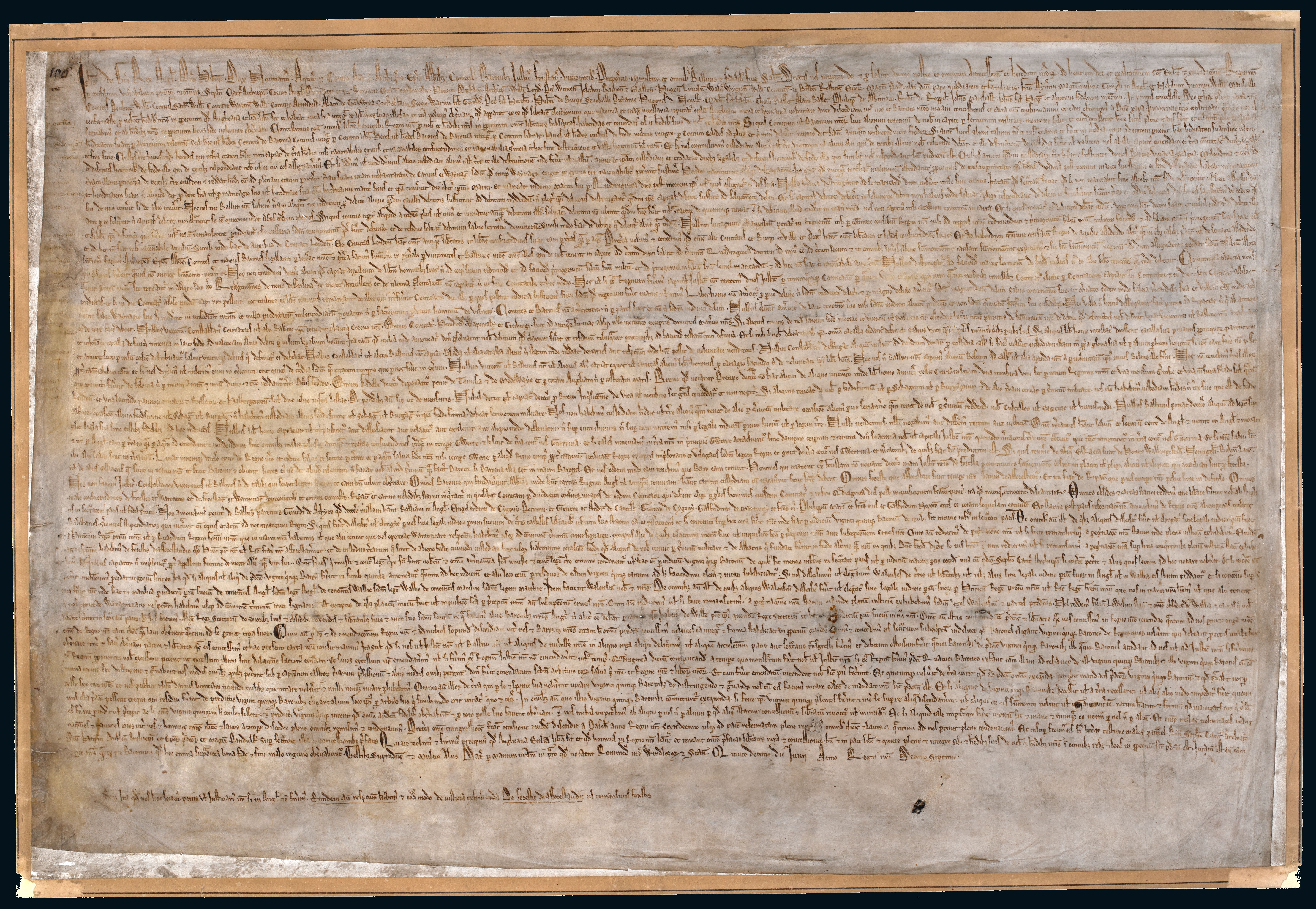
Et omnes malas voluntates, indignationes, et rancores, ortos inter nos et homines nostros, clericos et laicos, a tempore discordie plene omnibus remisimus et condonavimus. Preterea omnes trangressiones factas occasione eiusdem discordie, a Pascha anno regni nostri sextodecimo usque ad pacem reformatam plene rem{isim}us omnibus, clericis et laicis, et quantum ad nos pertinet plene condonavimus. Et insuper fecimus eis litteras testimoniales patentes Domini Stephani Cantuariensi archiepiscopi, Domini Henrici Dublinensis Archiepiscopi et episcoporum predictorum, et magistri Pandulfi, super securitate ista {et} concessionibus prefatis.
We have remitted and pardoned fully to all men any ill-will, hurt, or grudges that have arisen between us and our subjects, whether clergy or laymen, since the beginning of the dispute. We have in addition remitted fully, and for our own part have also pardoned, to all clergy and laymen any offences committed as a result of the said dispute between Easter in the sixteenth year of our reign and the restoration of peace.
In addition we have caused letters patent to be made for the barons, bearing witness to this security and to the concessions set out above, over the seals of Stephen archbishop of Canterbury, Henry archbishop of Dublin, the other bishops named above, and Master Pandulf.
